1 - Expected post-Chinafy results
5 Things to learn from tourism websites that don't work in China, but could in 2024
If you don’t know this already, this might come as a shock.
Most tourism websites don’t work in China like they do elsewhere.
Some tourism industry statistics…
1. Most tourism websites take an average of 25s and upwards to load in China
2. Up to 35% of resources on average fail to properly deliver in China. This includes images and videos.
So, what are the impacts of a slow hotel website in China? Or the better question - what can be done about it?
Takeaway 1: Hotels and local attractions don’t have to (solely) rely on OTAs
While OTAs certainly help diversify booking channels, there is much to be done to maximise direct booking opportunities.
Currently hotels are paying about 15% commission to OTAs per booking. In dollar terms, that works out to be US$350,400 annually for a 200-room hotel with 20% bookings from China. See a rough calculation below:
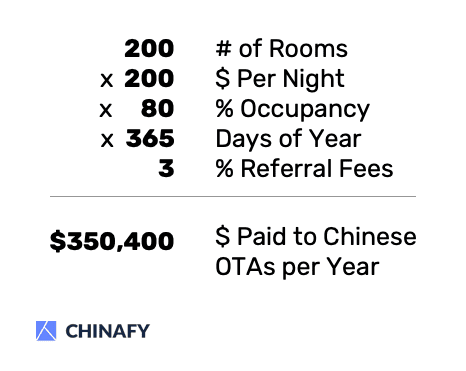
Source: Chinafy
While one could argue that paying OTAs is a must, it's important to take into account Chinese travellers who would be open to booking directly - simply cannot, and therefore are all the more encouraged to book via Chinese OTAs like Ctrip and Fliggy.
Let’s try the checkout process on Conrad Hotels by Hilton.
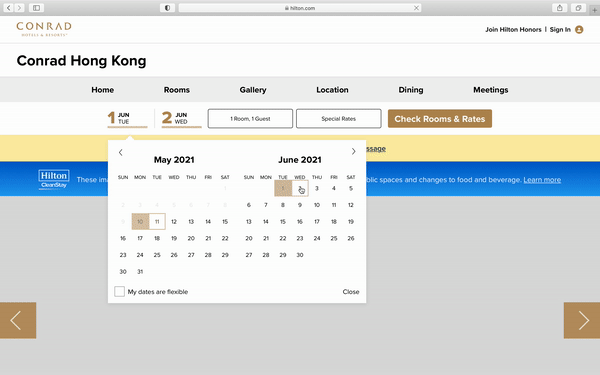
Conrad Hotels by Hilton website loaded from a Safari Browser from China
All that’s needed to diversity your hotel's direct booking channels is to optimize your hotel website for China. More on how to do just that, below.
Just how much better can offshore hotel websites become?
Take a look at Swire Hotels which has used Chinafy to achieve an 8.2x acceleration in China.
Takeaway 2: Slow website = Inability to effectively run marketing campaigns
In an ideal world, hotel groups run a healthy marketing mix across multiple channels with efforts across awareness-building.
This might include building strong search intent and engagement across platforms such as WeChat, Weibo, Baidu.
Successful marketing initiatives drive visitors to the website, where they can then commit to a stay and then exit the site.
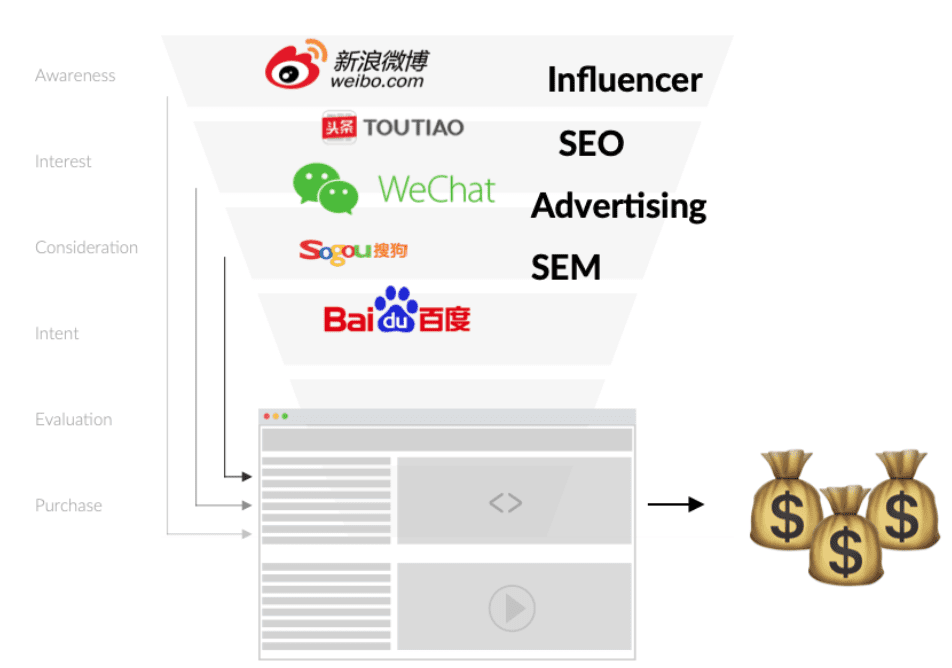
Examples of a marketing funnel including key marketing channels in China.
In reality, however, hotel websites hosted offshore can pour as much money into marketing – and still not see a significant improvement in their conversion rates in China.
Why? In most cases, this is because their website doesn't work in China.
Take Disneyland Hotel in Hong Kong as an example.
Disneyland's website currently ranks as the top one search result on Baidu with related keywords.
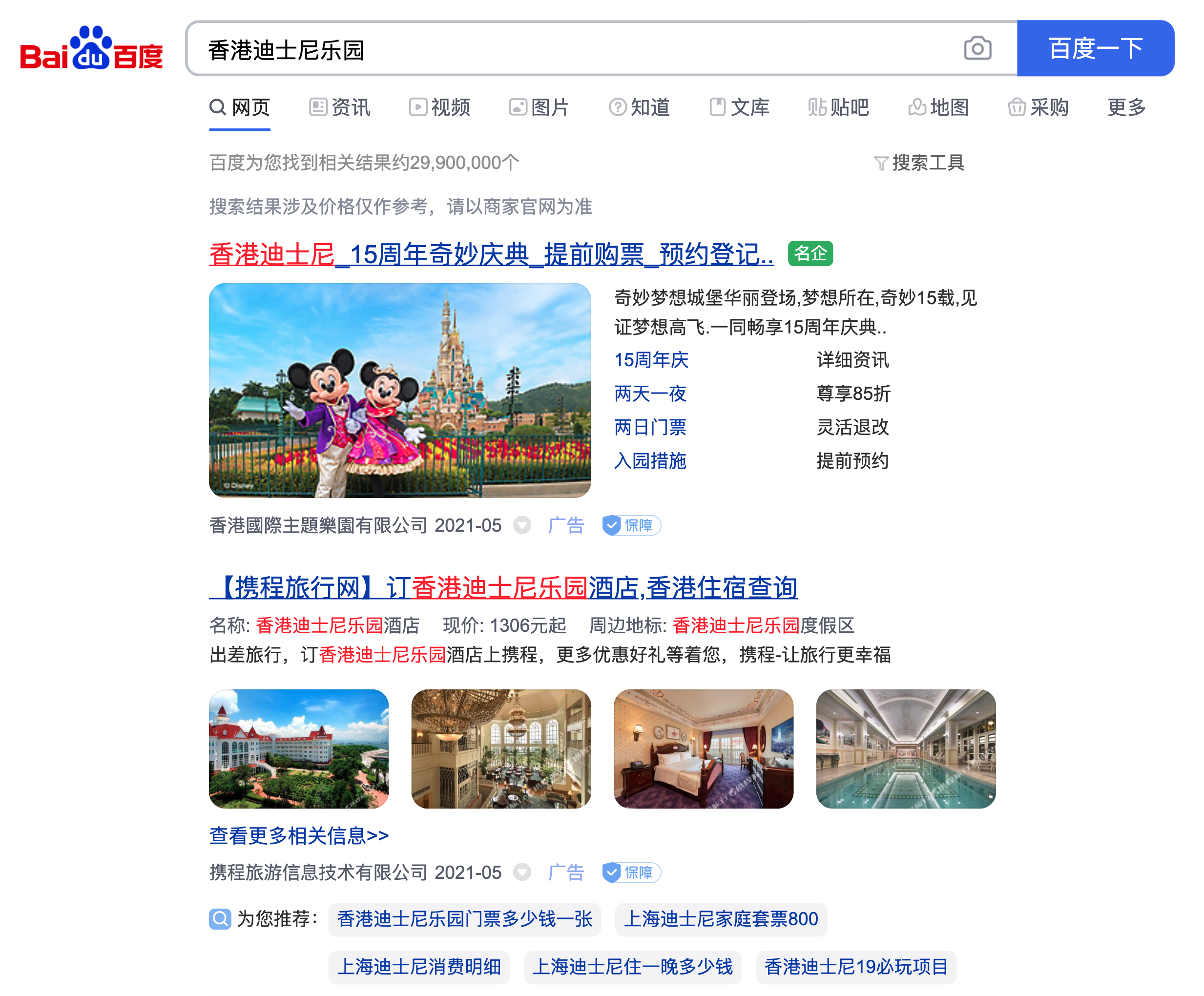
However, friction starts building when visitors click on that listed site.
See a side-by-side comparison loaded in Singapore (left) vs China (right):
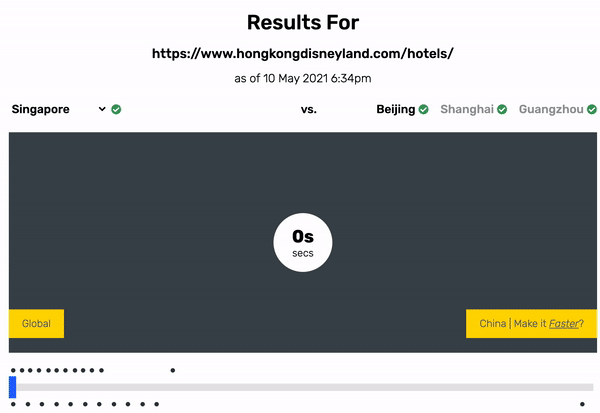
That brings us to solutions on how to fix your website for China
(Partial) Solution 1: CDNs and hosting closer to China.
We'll go into why this is a partial solution below. Other than accelerating websites in China by addressing cacheable resources on the primary domain, CDNs are by nature unable to address 3rd party resource incompatibilities.
Unlike other markets where CDNs and hosting closer to the user may resolve (or at least improve) web performance issues, China is a unique case.
Platforms and common web libraries are notorious for being inaccessible or exceptionally slow in China. These include inaccessible resources like Instagram embeds, Facebook Like widgets, Google Maps, some of which are explicitly blocked in China, and other slow-to-deliver resources.
CDNs perform a variety of functions with the most traditional ones set up to accelerate the "delivery of content". In other words, CDNs make sites faster – but they don’t “fix” broken sites.
| More in ‘CDN vs Chinafy: Which One Do You Need?’
Solution 2: Onshore Hosting. Some companies opt for this option but note that the process can takes months or years.
Yes, you can host in China to help reduce latency. However, what's involved?
To legally host in China, websites will need to be registered under China’s Ministry of Industry and Information Technology to acquire an ICP (Internet Content Provider) certification. They will also need to go through a PBS filing.
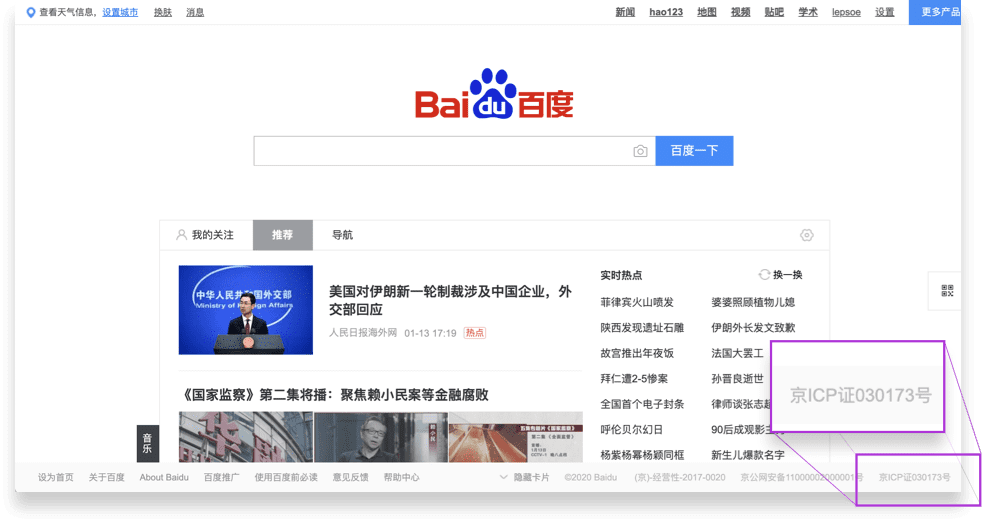
ICP license number example in footer (baidu.com)
The process can take anywhere from 3 weeks minimum up to 6 months, requires building a new website from scratch, and a Mainland contact person, among other things…
Additionally, you will still need to likely rebuild the website from scratch or hire expert headcount to manually modify the website for China as inaccessible resources, remain incompatible.
Manual engineering work and migration is doable. However, note that companies have commonly flagged that it may affect how your site loads globally outside of China, seeing as what works well onshore might not work well offshore and vice versa.
More in ‘What is an ICP License? Do I Need It? and How Do I Get It?’
Solution 3: Chinafy
Chinafy can be bolted onto almost any website to improve its speed and functionality.
The platform works by re-engineering and delivering a China-friendly version of your existing website. This is done by combining Chinafy's proprietary intelligent resource technology (which addresses incompatible resources) and best-in-class near-China or China CDNs.
It's the also only platform able to achieve virtually onshore performance, offshore. Not to mention, trusted by mid-to-large sized companies to listed MNCS, with official partners including AWS, Alibaba Cloud and more.
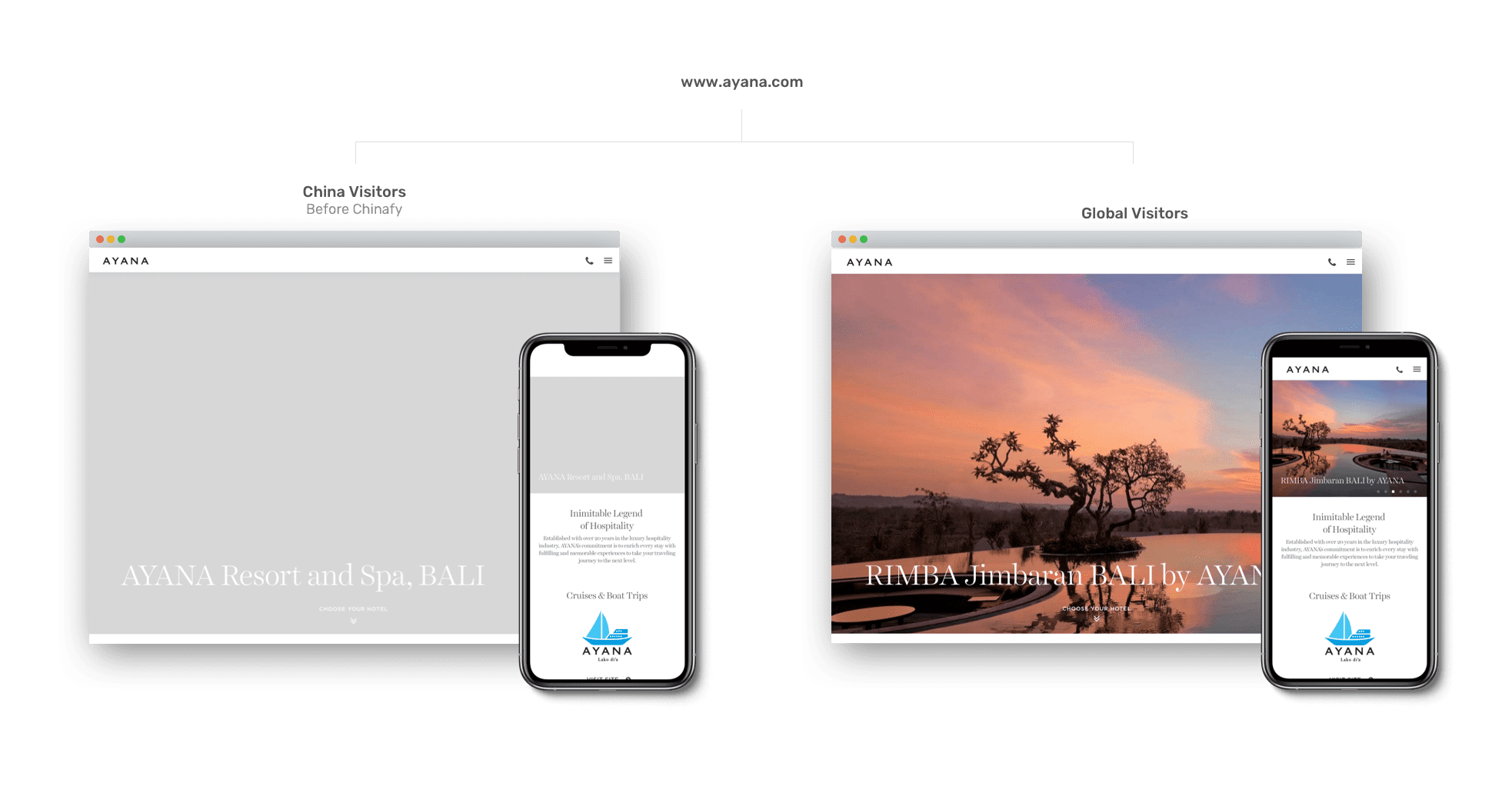
Before Chinafy: ayana.com in China vs. non-China locations.
Want to see the Chinafy process in action? Read how Ayana is now 11.9x faster in China after Chinafy in this case study.
Interested in a free evaluation of your travel or tourism website?
It’s indisputable that a high-performance site is crucial to booking revenue in China.
Submit your website via our Get Started form.



1 - Expected post-Chinafy results






























